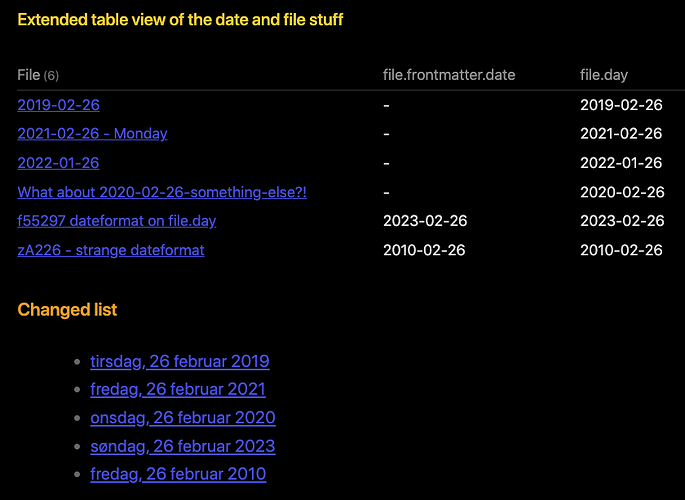Yes, it can be done. ![]()
And this is how you do it:
### Extended table view of the date and file stuff
```dataview
TABLE file.frontmatter.date, file.day, file.title
WHERE file.folder = this.file.folder
```
## Changed list
```dataview
LIST WITHOUT ID link(file.link, dateformat(file.day, "cccc, dd MMMM yyyy"))
WHERE file.folder = this.file.folder
WHERE file.day.day = this.file.day.day
AND file.day.month = this.file.day.month
```
These two queries produce this output:
The first query lists all the test files from my folder, which also shows how Dataview is able to pick up the date from the file name (or for those last two files from the date field in the frontmatter, if you just want to really name your file something entirely else).
Note how your previous file names, also gets picked up.
The last query, shows what you asked for in this request, namely using dateformat() to change the link. Do note that we’ve got to use LIST WITHOUT ID to be able to change the format, so it’s then a little more cumbersome to add other stuff into the list, if that’s wanted.
(I’m kind of thinking one might be able to change the date format in the settings somehow, but couldn’t figure out how to get that to take effect on queries directly)
